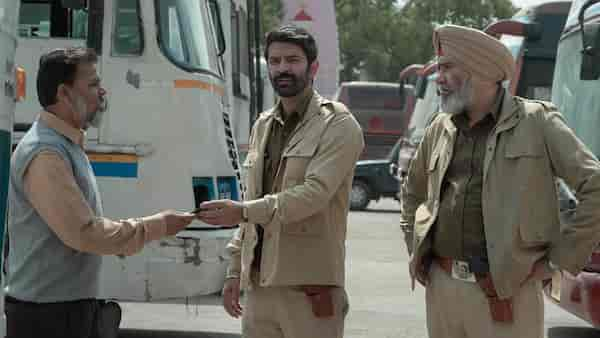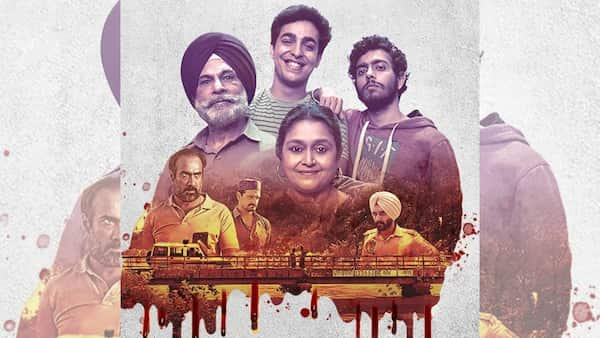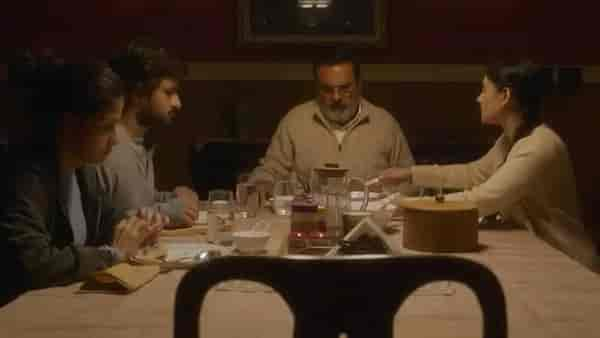How Punjab Emerged As The Site Of Streaming's Most Provocative Explorations
With titles like Kohrra, Tabbar and Masoom, streaming offers an increasingly nuanced portrayal of the Punjabi sociocultural-scape, unlike the boisterous stereotypes of Bollywood. Manik Sharma writes.

Last Updated: 01.51 PM, Jul 16, 2023
IN a scene from Netflix’s Kohrra, policeman Balbir Singh (played by Suvinder Vicky) tells his colleague Garundi (Barun Sobti), in an inebriated condition, “Tenu ptaa hai saade Punjab di problem ki hai, saada mitti pao attitude” — i.e. Punjab’s habit of burying the obvious and moving on. The idiomatic tendency that Singh refers to echoes a landscape that has trained itself to look past its wounds as opposed to licking them. This is after all a place that has had to suffer the Partition, contemplate insurgency and accommodate a drug problem that refuses to go away. Singh’s character also embodies an emerging portrayal of Punjab on streaming. Relegated to loudmouthed characters and stereotypical tics by mainstream Hindi cinema, this contemplative but discomfiting view, brave enough to frame tragedy as a way of seeking humanity, feels rather welcome.
In SonyLiv’s Tabbar, a middle-class family finds itself in the throes of a mafia circus that sends the reluctant patriarch Omkar Singh down a dark path. Easily the performance of 2021, Pavan Malhotra’s embodiment of Omkar hinted at the hidden intensity of every Punjabi, who casually warps life through bursts of laughter and glasses of lassi. By positioning vice and virtue under the same roof, Tabbar argues that not everyone here has derailed as part of a collective. Some have staunchly resisted the tides of persuasion. Under each canopy that casts a shadow there exists this desperation for dignity. The two in a sense, support the other’s existence. It’s why a father must murder and maim so his family can at least stand the chance of a re-evaluation.

In Disney+ Hotstar’s Masoom, a daughter returns to her hometown, looking to uncover secrets about her mother’s death. It’s not exactly an investigation, but more of an exercise in addressing biases. Her father, played by a stunning Boman Irani, embodies the kind of hardened skin that is echoed across streaming’s many stories. A kind of dubious, but unyielding conviction that reveals more than it hides. Here Punjab feels like a place that cannot accommodate weaknesses as clues to fragile territories. Masoom is that intimate, but painful journey that a woman must make to better understand a distant and inflexible father. Sometimes, the only road men raised in tortured landscapes can take is the one where delusion feels easier to seed than understanding.
Since Sudip Sharma’s heady and controversial Udtaa Punjab, the state has quietly emerged as a place to set grim, provocative examinations of the country’s fault-lines. Punjab and its corrosive, conflicted past possibly makes for an ideal canvas to paint people who deal not just with inner frictions but also external dilapidation… A literal manifestation of fracture. Land, Kohrra attests, is closely connected to the way relationships function, blood flows. Punjab’s culture is a contradiction that argues for homelands with the innate desire to also immediately leave them. Punjabis are spread all over the world, and yet hold onto the sense of a homeland where they are still irreplaceable. It’s why the Punjabi film industry is far more globally recognised than it is within the country. It travels further and farther than most domestic industries, and yet tells stories in the kind of grounded grammar that feels inclusive. Strange as it might sound, it manifests as both aspiration and anxiety, as music videos overflowing with luxury cars meet the grim, toasted look of anguished cops looking for a clue into the messiness they tend to hide. Even if the centre of larger-than-life choices and characters holds, there is guilt and resentment that the margins speak of. Margins that streaming seems to gradually be pulling in.

There is an argument to be made for lighter, maybe more congenial stories to also be exacted in this landscape before we reduce it to a parasitic, irredeemable wasteland. Sure it echoes the kind of degradation that the state has come to suggest. From cancer trains to a streak of violence epitomised by a violent past, Punjab has really never taken its foot off of the pedal of conflict. It cycles through fires and smoke, only to momentarily emerge as a place that feels boisterous because everyone agrees to imagine it so. Look closer, our streaming stories want to say, and you’ll discover a world of hurt and agony beneath the ditzy, languorous music videos, the overstuffed but popular cuisine and an expanding global footprint.
Culture doesn’t merely identify your choice of fabric or footwear, but it also estimates a people’s projection of their history, through the wilful or hapless pursuit of their present. If it’s tragedy, it’s probably been a long time coming. If it’s comedy, it might lead to the momentous point from where grief and trauma can be overlooked but not forgotten. A place where the mitti that Balbir Singh speaks of, is necessary to bury a painful past, so it can shoulder the foot of the present. We can still however flip it over, shovel it for things it would be criminal to erase.

 Premium
Premium